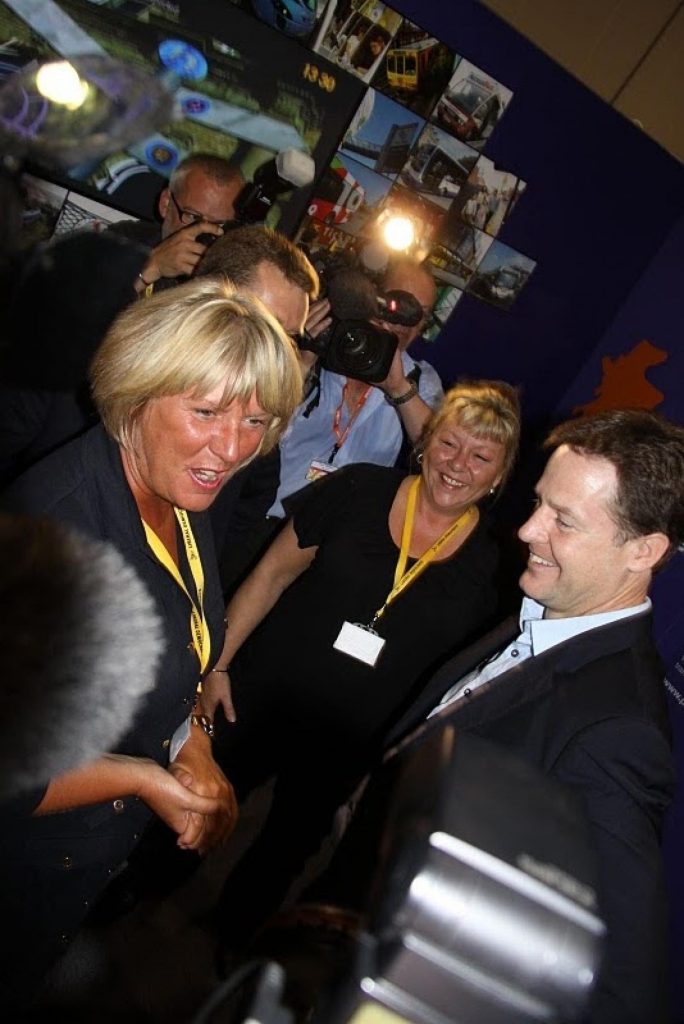After the party conference bubble, a clearer picture of each party’s transport policies emerges
Autumn Party conferences can be a bit of a blur – mini-political Glastonburys for politicians and the travelling roadshow of journalists and lobbyists. A bubble of meetings, speeches and talk. But when you finally get on the train back to the real world you do leave with a clearer impression of where each party is at on the key transport issues.
Liberal Democrats
On transport, the Lib Dem conference is all about Norman Baker – who continues to throw his considerable energies into making the very most of his tenure at Transport. He’s doing this by shaping local transport around his own priorities – but within the context of a coalition Government that is reducing and devolving public spending. What are Norman’s priorities? I would say:
- The mainstreaming of spending on active travel.
- Holding the line on the use of all the bus powers in the Local Transport Act 2008 (including Quality Contracts).
- Making sure that the more rural areas don’t lose out from any changes.
- And perhaps, most challenging of all, trying to find a way through the thicket of a fragmented, deregulated / privatised public transport network to get to the prize of a more integrated offer for passengers including smart and simple ticketing.
This degree of activity and intent is not a common feature in junior transport ministers (who usually cautiously read out whatever the officials give them before moving on). In some ways Norman’s approach is also a further example of ‘managed localism’ – via a series of centrally determined funding competitions – but there’s no doubt that it is proving successful on objective one especially, which is the mainstreaming of cycling in particular with local transport policy.
Labour
Meet the new Barbara Castle? If Labour is elected (and all other things remain equal in the shadow cabinet) then Maria Eagle could go right through from opposition to government. Why the Barbara Castle comparison? Well in the 1960s Harold Wilson decided that for once Government was going to make transport a priority and Castle seized the opportunity with one of the biggest packages of progressive transport legislation the country had seen – the 1968 Transport Act – which among other things created the PTEs. At Labour conference Maria Eagle certainly seems fired up to seize the moment if she has the opportunity. If the Eagle lands at Marsham Street then a not-for-profit InterCity network, a devolved local rail network and a managed transition from bus deregulation to local transport authority control would be her priorities. However there’s a lot that could happen between then and now – and she would need the two Eds on her side too.
Conservatives
If the new Secretary of State was appointed as a ‘steady eddie’ to keep the transport brief tranquil then, not for the first time, this is already proving harder than it looks – with the west coast franchise blowing up in the DfT’s face. But that aside, what also emerged from the Conservative party conference was:
- A very firm commitment to HS2 from McLoughlin to further demoralise the anti-campaign and to kill off the niggling stories in the press about whether it’s really going to happen or not
- The emergence of a ‘mods and rockers’ debate on buses within Conservatives who are interested in buses. Whilst new DfT Stephen Hammond continues to pursue the traditional Eighties-style hard line in favour of bus deregulation, Steve Norris told the pteg fringe that it should be down to local transport authorities to decide. Indeed there’s a fair few Conservative MPs now who are far more interested in outcomes than they are in defending the principle of bus deregulation and recognise that franchising is a perfectly reasonable view to take.
- Roads are back – kinda. Talk of building new motorways as a gut response to economic problems is becoming semi-respectable again – but there’s far from a groundswell for it and perhaps a trace memory of just how unpopular massive road building programmes can be – particularly among voters in the prosperous, over-heated South East
Time for Whitehall to let go?
This was the question that each of our fringe meetings posed in its title. And the answer at all three was a resounding yes! The will and the impulse is there…but to get the devolution that really matters off the launch pad (bus and rail) before the gravitational pull of the civil service pulls it back to earth. Now that’s the hard bit.
Jonathan Bray
